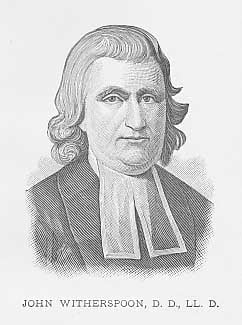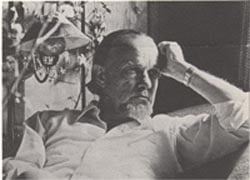This Day in Presbyterian History:
There was No Ecclesiology 101 on How to Begin a Denomination
There wasn’t a manual on denomination beginnings. No teaching elder had ever taken seminary courses on it. No one on the steering committee had any experience in the process. It was entirely new to everyone, and yet it was something which had to be done.
Much like the northern Presbyterian church, the seeds of apostasy had entered the Presbyterian Church in the United States in the nineteen thirties of the twentieth century. It was very small then, most often in the sense of shame of some of the language in the Confessional Standards. But then there came a decided effort to capture the Southern Presbyterian Church for the liberal agenda, led as usual by the seminaries of the church. Members would return from, for example, a war, and find that they no longer recognized the church of their fathers. Principles and practices began to be printed in the denominational agencies which were contrary to the essentials of the Presbyterian faith. And, like the Northern Presbyterian church experience, various conservative individuals and churches began to organize committees outside the church which would accomplish the work of the church. So we read of the Southern Presbyterian Journal, Concerned Presbyterians, The Presbyterian Evangelistic Fellowship, and Presbyterian Churchmen United. These organizations, and the joint meetings they held, galvanized the conservatives of the Southern Presbyterian church. Eventually all of these joined forces and established a Steering Committee for a Continuing Presbyterian Church. Separation from unbelief would be demanded of them.
It was on May 19, 1973 in Atlanta Georgia in the sanctuary of Westminster Presbyterian Church that 450 ruling elders from 261 churches representing 70,800 members joined together in a convocation of presbyters or Sessions. They listened to stirring messages. They viewed slide presentations which shared the kinds of churches and ministries which would be a part of any continuing church. They reaffirmed their committment to the Scriptures, the Reformed faith, and the Great Commission. And when the pivotal time came for a vote as to whether to proceed ahead and actually begin a new denomination separate from the Presbyterian Church in the United States, the convocation voted 349 – 16. Yet at the same time, they let it be clearly understood that there was love and respect toward any of their number, or within the church as a whole, who did not believe they should withdraw at this time. It would be seven more months that such a new denomination became a reality, but this was one of the important beginnings of what became known eventually as the Presbyterian Church in America. And this beginning came primarily from the ruling elders of the church.
Words to Live By: Pray much for your ruling elder in the congregation of which you are a part. They are men just like you who sit in the pews. They have their fears and foibles just like you. Yet God has called them to be overseers of the flock, to pastor the flock of God whom the Son has redeemed with His own blood. Therefore, submit to them in the Lord, support them in the work, and be an encouragement to them in their work of shepherding the people of God. They are a vital part of the church.
Through the Scriptures: Psalms 115 – 118
Through the Standards: Warning and encouragement regarding repentance
WCF 15:4
“As there is no sin so small, but it deserves damnation; so there is no sin so great, that it can bring damnation upon those who truly repent.”


